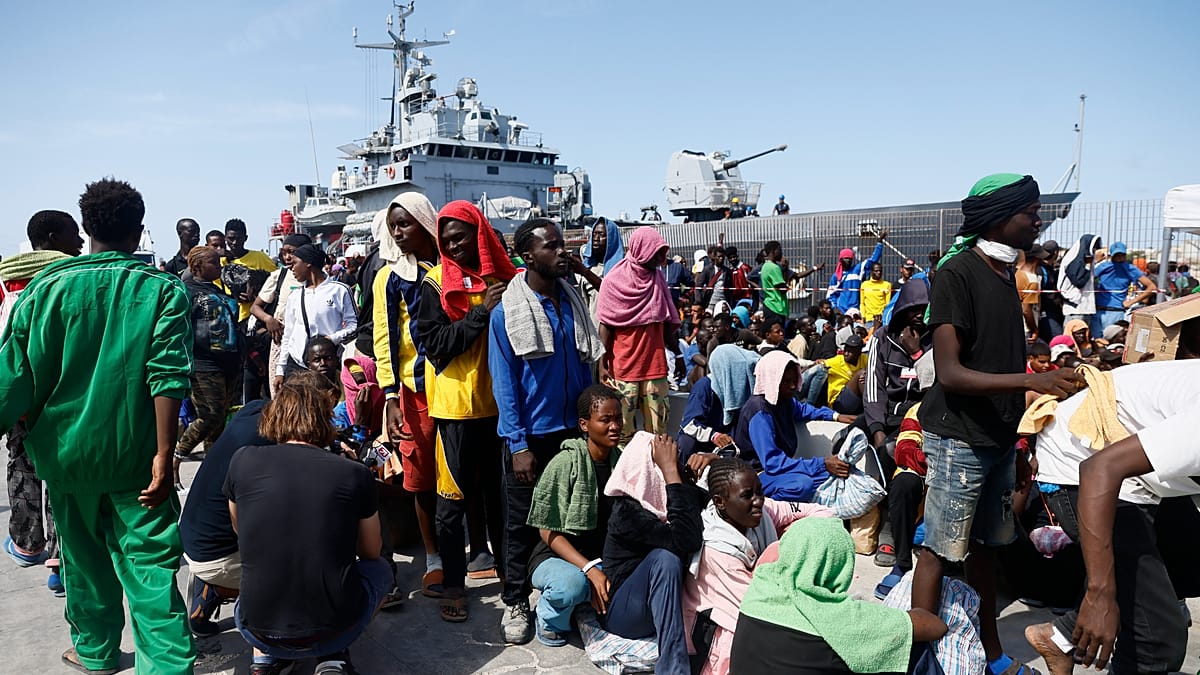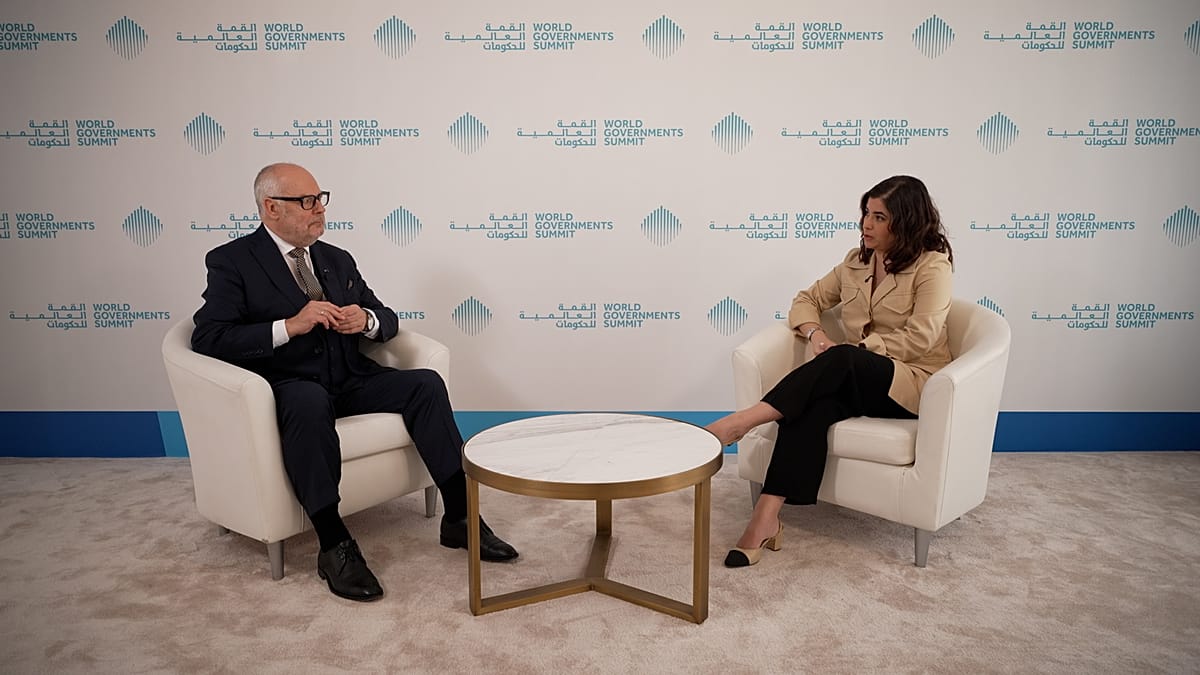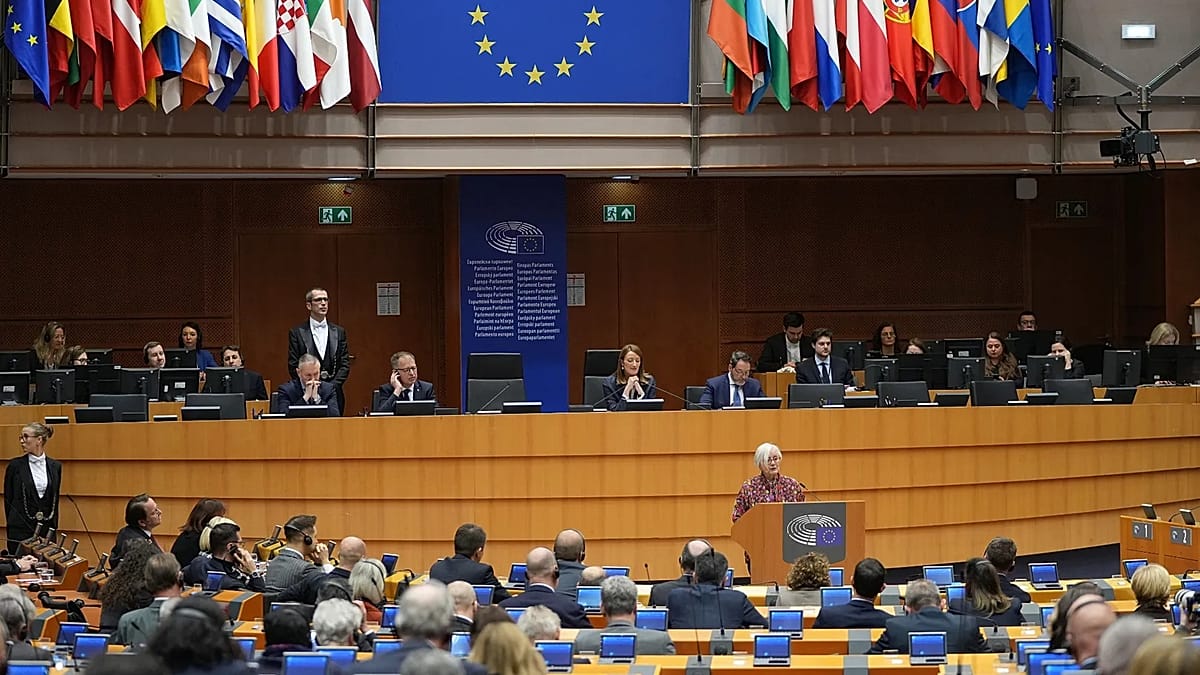
Spain, Italy, Greece, and Cyprus have been considered “under migratory pressure” by the European Commission in its first Annual Asylum and Migration Report, unveiled on Tuesday.
These countries were interested last year in a “disproportionate level” of migrant arrivals, including those rescued at sea.
Spain, Italy, Greece and Cyprus will therefore benefit in 2026 from the solidarity of other EU member states, which could be expressed by relocating asylum seekers over their territory or by financial contribution.
Together with this assessment, the Commission proposed to the EU 27 member states the Annual Solidarity Pool, a mechanism to determine the total number of asylum seekers to be relocated and the amount each country should allocate, or to compensate for by paying.
The pool’s proposal is not public. It will be discussed by the EU member states, which are set to decide the size and the solidarity share for each country by the end of the year.
Each member state – excepting the ones under migratory pressure – has to contribute in proportion to its population and total GDP, and could choose among three options to meet the needs outlined in the solidarity pool: relocating a certain number of asylum seekers to their own territory, pay €20,000 per person they do not relocate, or finance operational support in member states under migratory pressure.
The final decision will be taken by EU countries by a vote at qualified majority, with the minimum size for the solidarity pool set by law at 30,000 relocations and €600 million in financial contributions.
The Commission’s report also identifies 12 states “at risk of migratory pressure”: Belgium, Bulgaria, Germany, Estonia, Ireland, France, Croatia, Latvia, Lithuania, the Netherlands, Poland and Finland.
These countries are required to provide solidarity to those under migratory pressure, but their situation will be reevaluated to avoid disproportionate obligations in the next year.
A third group of countries has been classified as “facing a significant migratory situation”: Bulgaria, Czechia, Estonia, Croatia, Austria, Poland. They are still required to provide solidarity, but can ask for an exemption to their quotas, which has to be certified by the Commission and approved by other member states.
The report and the solidarity pool are the basis for developing the system of “mandatory solidarity” envisaged in the Pact on Migration and Asylum, the major reform of migration policy adopted in 2024.
Some member states do not want to apply the rules
Some EU countries are still opposing the system envisaged by the Pact on Migration and Asylum.
Hungary’s Prime Minister Viktor Orbán, Poland’s Prime Minister Donald Tusk and Slovakia’s Prime Minister Robert Fico have already stated that they will not implement EU rules, as they do not want to contribute either financially or by accepting migrants from other countries.
“Poland will not be accepting migrants under the Migration Pact. Nor will we pay for it,” Tusk wrote on Twitter shortly after the presentation of the report.
Budapest and Warsaw have not even presented to the Commission their implementation plan for the Pact, EU Commissioners for Home Affairs Magnus Brunner admitted during a press conference.
Failing to contribute to the solidarity mechanism would be “a breach of obligations under EU law,” a senior EU official told Euronews.
This could lead to an infringement procedure towards the countries not willing to contribute when the regulation enters into force in June 2026. The first assessment of the EU’s new migration rules will happen next July, according to EU sources.
The only legal possibility to avoid the solidarity share is applying for an exemption, which could be done only by countries considered as “facing a significant migratory situation”: Bulgaria, Czechia, Estonia, Croatia, Austria and Poland.
If the exemption is accepted by the Commission and other member states, the country that asked for it is no longer obliged to accept asylum seekers, nor to compensate for it with financial contributions. That country’s share will not be redistributed among the other member states.
According to the Commission’s report, the general migratory situation in the EU has improved, with illegal border crossings down by 35%, during the reporting period (July 2024-June 2025)
At the same time, the Commission considers irregular arrivals, unauthorised movements of migrant people within the EU and weaponisation of migration by Russia and Belarus, among the challenges the EU has still to face.









